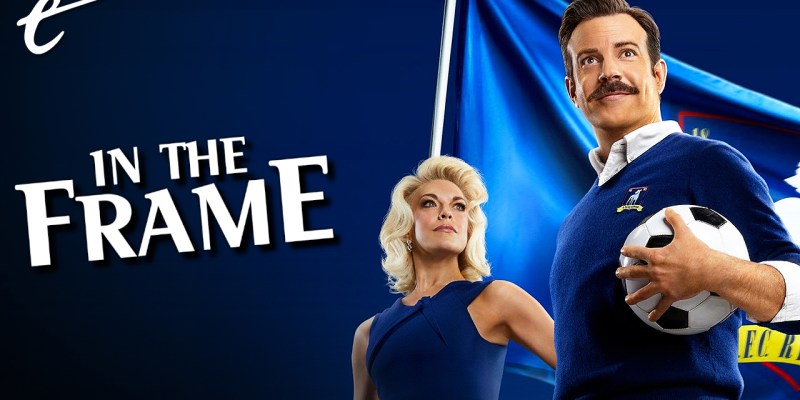Ted (Jason Sudeikis) spends the majority of this week’s episode of Ted Lasso, “Big Week,” contemplating a very simple question: “Am I a mess?”
This is a fascinating question for the show to contemplate. Ted Lasso is a cultural phenomenon. It premiered early during the pandemic. Over the course of that season, it became a breakout hit. It was one of the shows that put Apple TV+ on the map. It won seven Emmy Awards in its first season. Even its awards season run became fodder for memes, with Sudeikis collecting his Golden Globe remotely, wearing a tie-dye hoodie.
However, the success of Ted Lasso runs deep. It became a poster child for a particular worldview. Reviews described the series as “a warm hug of nice.” Inkoo Kang summarized it as “kindness porn.” Ted Lasso is the story of an American football coach hired to oversee British soccer club AFC Richmond. Ted arrives with no knowledge of the sport but wins the team over with a big smile and bigger heart. Ted Lasso presented a comforting way of looking at the world: Wouldn’t it be nice if everybody was nice to one another?
Of course, there were limits to that philosophy. Niceness cannot solve every problem. As Emily St. James noted in her review of the first season, “kindness and decency only go so far.” At the same time, it was also fair to wonder whether it was reasonable to ask anything more of a fish-out-of-water workplace sitcom, a show Sarah Rodman effectively summarized as “ultimately a workplace comedy a la The Office, with more sweaty men.” Isn’t it enough for Ted Lasso to be fantasy?
Ultimately, Ted Lasso became part of a wider debate. In the gap between its first and second seasons, it stopped being just a silly little half-hour comedy about a nice American playing a British sport. The spotlight only grew, drawing attention to social issues that couldn’t be solved through niceness, such as the pervasive racism in soccer. Sudeikis was drawn into the discussion, attending the second season premiere wearing a shirt with the names of several racially abused players on it.
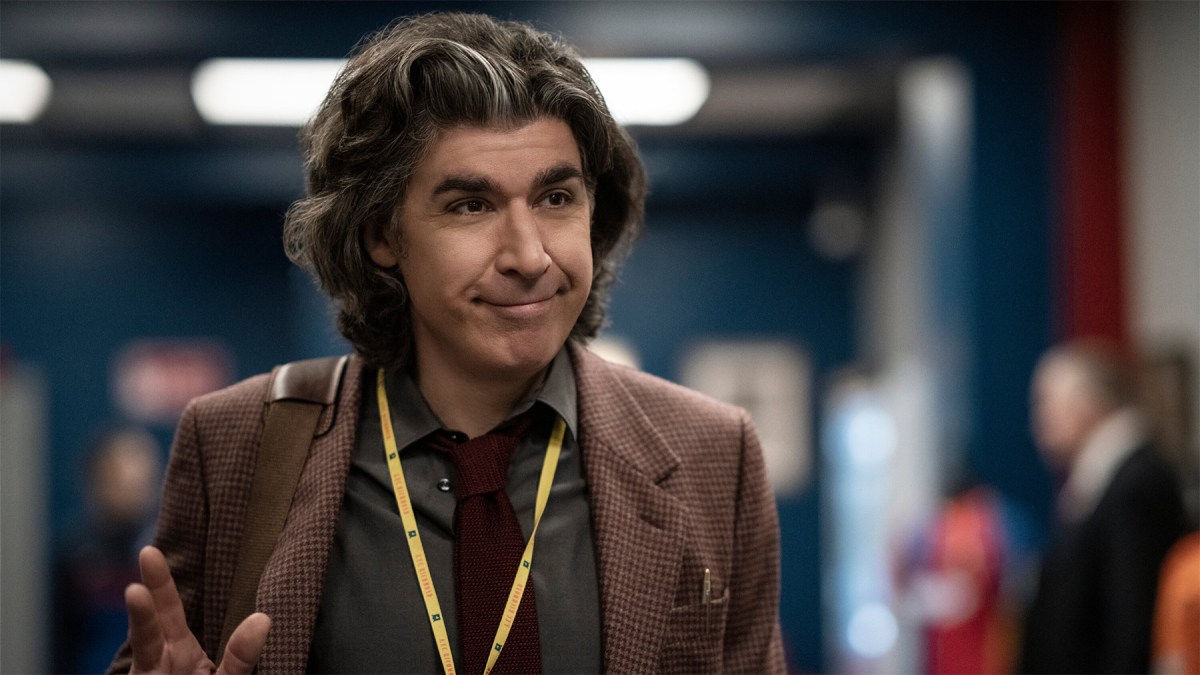
There was also the question of Sudeikis himself. To an extent, Sudeikis is Ted Lasso. The character predates the show, first appearing in a series of NBC Sports promos. Sudeikis is credited as having developed the show and has served as a writer on multiple episodes, including the series premiere and the upcoming series finale. There is a sense in which it is difficult to separate the performer from the role. The show’s success is, in no small part, his success. Its big year was his big year.
As such, Ted Lasso’s fundamental niceness is complicated by shifts in how Sudeikis is perceived. In November 2020, a month after Ted Lasso’s first season ended, it was revealed that Sudeikis had split from his longtime partner, Olivia Wilde. This lent a renewed poignancy to the show, which was built around Ted’s separation from his wife Michelle (Andrea Anders). Indeed, Sudeikis has talked about how Wilde pushed him to make the show.
Much has been written about how Ted Lasso is not meaningfully about sport in general or soccer in particular. At its core, Ted Lasso is about breakups. Ted is separated from Michelle. Rebecca (Hannah Waddingham) won Richmond in a bitter divorce battle with her ex-husband Rupert (Anthony Head). Keeley (Juno Temple) broke up with Jamie (Phil Dunster) during the first season, only to hook up with Roy (Brett Goldstein) who broke up with her at the start of the third season.
These breakups don’t even have to be romantic in nature. One of the driving narratives of the third season finds Ted thrown into conflict with his old friend, Nate (Nick Mohammed). Ted mentored Nate, encouraging him and developing him. However, Nate grew embittered and angry and eventually left Richmond to coach West Ham. Nate’s move to West Ham is seen as something of a betrayal, and he delights in trash-talking Ted to the press in the premiere.
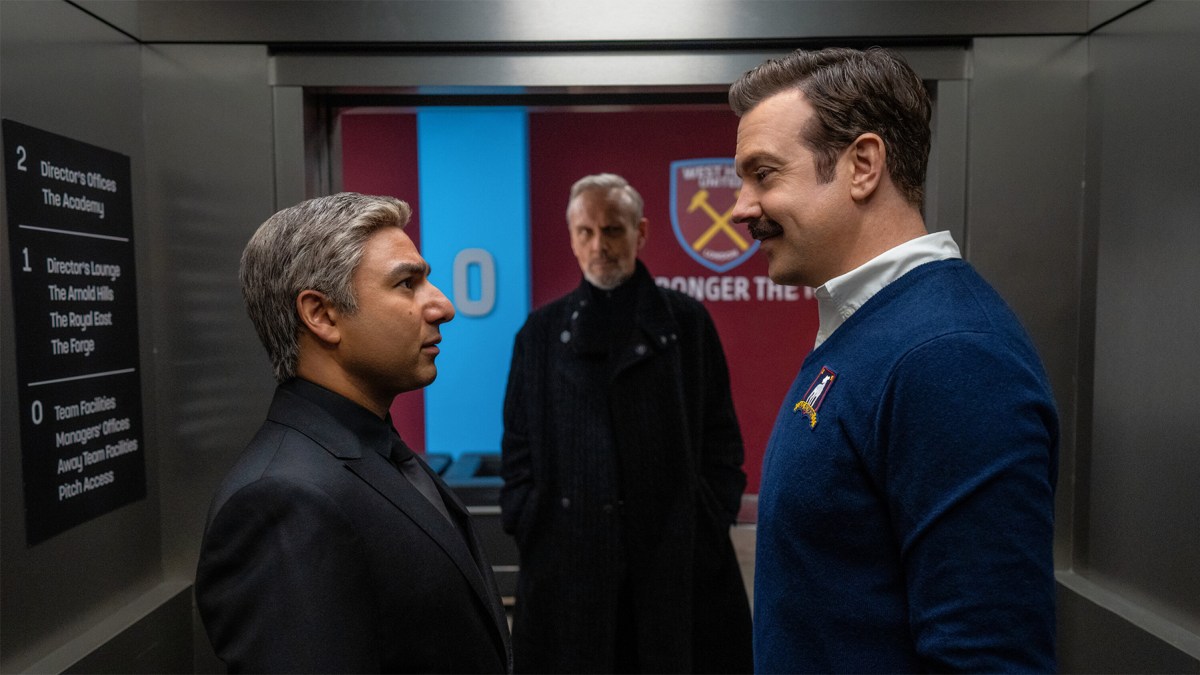
As such, Sudeikis’ separation from Wilde is entangled with Ted Lasso, particularly with the emergence of increasingly complicated and adversarial accounts of the separation, including the serving of papers to Wilde at a public CinemaCon event and reports from household staff who had worked with the couple during the breakup. These reports complicate Sudeikis’ public persona, and because Sudeikis is inseparable from Ted Lasso, they complicate Ted Lasso.
There is a sense that Ted Lasso understands this. The second season could easily have just repeated the template established by the first, continuing a story about fundamentally nice people being kind to one another and overcoming any obstacle in their path through persistence and decency. It is to the show’s credit that it opted not to do this. Instead, it offered something of an interrogation of Ted Lasso, challenging the character’s underlying beliefs and asking if his niceness was really enough.
The second season throws Ted’s unrelenting optimism into conflict with a qualified mental health professional, Dr. Sharon Fieldstone (Sarah Niles). Sharon was a psychologist for the team, and Ted is initially hostile to her methods. He’s unwilling to talk about himself, unwilling to acknowledge that he might harbor any complicated emotions beyond his happy demeanor. Meanwhile, his panic attacks only intensify, and he completely fails to realize that he is alienating Nate. As Megan Garber argued, Ted confronts “the limits of his positivity.”
That season was controversial for several reasons. Superficially, an audience that binged the first season had to consume the second on a weekly basis, and people have forgotten how to talk about weekly television. More fundamentally, as Kathryn VanArendonk noted, there was a lot invested in it: “Ted Lasso has become a shibboleth of TV discourse. Mild critiques become backlash; responses become defenses; the whole thing is frankly a little bonkers.”
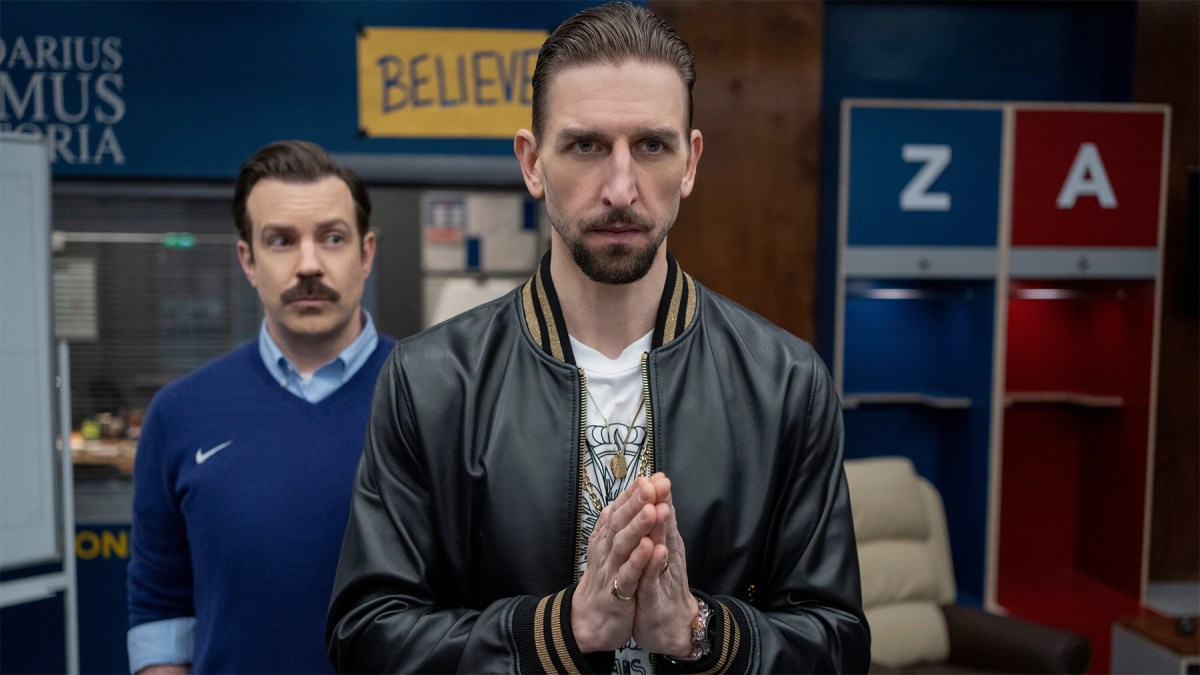
Fans of the show had anchored so much of their personality in Ted’s niceness that any challenge to it was perceived as an attack on them. One satirical headline from McSweeney’s effectively summed up the weird tone of discourse around this seemingly inoffensive comedy, “Ted Lasso Is a Shining Example of Kindness and Decency, and Critics Who Disagree Should Burn in Hell Forever.” In some ways, the show’s interrogation of its own brand of folksy niceness was a welcome creative decision.
When Ted Lasso premiered, its protagonist was positioned as a welcome counterpoint to the gritty male antiheroes that defined so much prestige television, from The Sopranos to Breaking Bad to Mad Men. Ted is a fundamentally decent person with no real vices. Ted is easy to like. He cares about people. He is selfless to a fault. He doesn’t raise his voice. He never seems to get angry, only mildly disappointed. That is undoubtedly appealing, but there’s something insistent about it as well.
Some critics were wary of the show’s portrayal of Ted as a living saint. “There’s something weirdly brittle about the way these characters are constructed,” Judy Berman noted of characters like Ted and the men of Parks and Recreation or Schitt’s Creek. “They’re simply too perfect, their personalities so meticulously designed to balance macho cred with sensitive masculinity that they can withstand no external pressure. Why is TV so desperate to create not just a good man, but the best man?”
There’s an interesting evolution across the three seasons of Ted Lasso. In its first season, the show is a traditional half-hour comedy; the season’s longest episodes run 33 minutes. In contrast, the first four episodes of the third season run about 50 minutes each. Ted Lasso has grown from a straight-up sitcom to something closer to an hour-long dramedy. In doing so, the comparisons between Ted and the archetypal antihero of hour-long prestige television become more compelling.
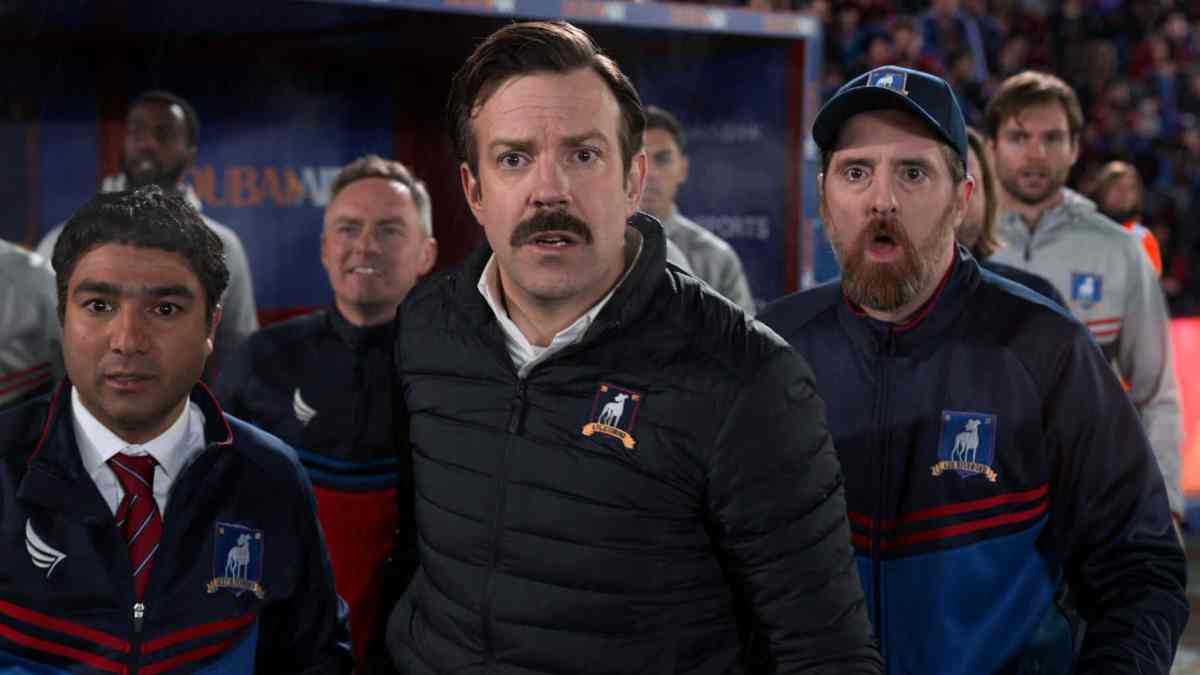
Ted’s big arc over the third season is learning that his relentless optimism is not enough. “We’re playing Nate this week, and you’re acting like it’s not a big deal; nothing’s different, he didn’t hurt you,” Coach Beard (Brendan Hunt) remarks in “Big Week.” In the same episode, Ted works through his feelings of betrayal in discovering that his ex-wife is now in a relationship with their former marriage counselor. Ted struggles to acknowledge the complexities of human emotions.
The later seasons of Ted Lasso repeatedly ask what exactly Ted wants to accomplish and if niceness is the best way to do that. “You know I don’t like being away from you, right?” Ted asks his son (Gus Turner) over videophone in the third season premiere. “And that I’d only ever do it for something really important, something I believe in, yeah?” He presses, “And do you understand why I’m still here?” Henry responds, “Of course: to win the whole thing.”
Ted squirms. “Well, now, don’t forget: winning ain’t everything.” This is the nub of it. Ted is coaching a sports team. While it’s nice to be nice, it’s also necessary to win. The topic is broached repeatedly in the premiere, as characters remind Ted that he’s not employed to make friends. That’s a bold and direct challenge to the audience: What if Ted’s decency fails the people around him? It’s one thing for Ted to win a moral victory, like in Rocky, but what if it causes the people who depend on him to lose?
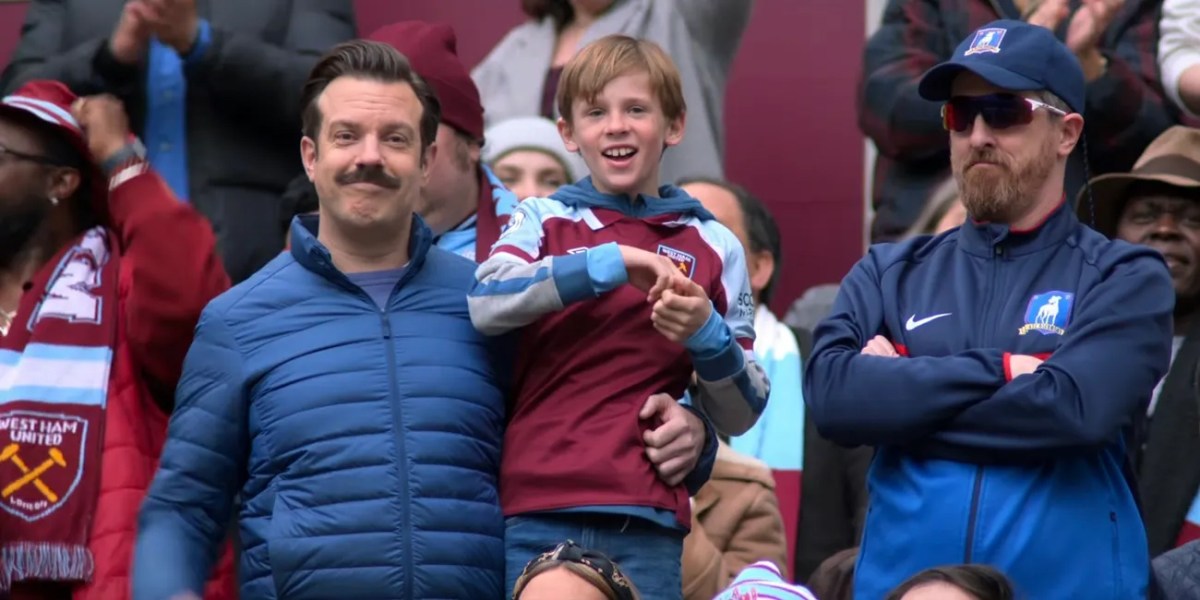
It’s a bold question, and the second and third seasons of Ted Lasso occasionally fumble the ball. In this week’s episode, “Big Week,” Richmond find themselves playing West Ham. When the team underperforms in the first half, Roy and Beard make the decision to show the players CCTV footage of Nate destroying the team’s beloved “Believe” sign. They do this against Ted’s wishes, as Ted doesn’t want to use anger and hatred to motivate the squad.
The interesting creative decision here would be to have that underhanded approach work, for the anger to galvanize the team and lead them to victory, forcing Ted and the players to question whether they want to win that way, whether victory trumps principle. Instead, “Big Week” offers a trite resolution. The team implodes. West Ham obliterates them. Ted shrugs off the insubordination from Roy and Beard. “Tried something new. Didn’t work. Big whoop.”
Still, allowing for these clumsy choices, there’s a lot to be said for the ambition of the second and third seasons of Ted Lasso. They aren’t as simple as the first season. They are, like their protagonist, a mess. However, they are also trying something new. It doesn’t always work, but there’s value in the attempt. The first season of Ted Lasso was a love letter to niceness. The second and third seasons explore if that’s enough.
